One of the simplest and most effective ways to protect yourself and your staff from getting sick is by regular hand washing. Research shows that only ‘61% of employees wash their hands properly with soap and warm water after visiting the toilet’, which means there's still 39% of people who don’t! Workplace hygiene is crucial, especially in shared workplaces, and since the new rise of COVID-19 in the UK, it has become even more important to promote good hand hygiene practices in any workplace.
Here is a summary of what we’ll be discussing in the guide:
- Importance of promoting hand hygiene in the workplace
- Common germ hotspots to look out for in the workplace
- Our recommended cleaning products for hand hygiene
- Best practices and tips for good hand hygiene in the workplace
Why is it important to promote good hand hygiene in the workplace?
A study by the World Health Organization reports that good hand hygiene can prevent up to 50% of avoidable infections. This goes to show how simple yet effective handwashing can be in preventing the spread of illnesses and infections. Good hand hygiene can reduce the transmission of bacteria in the workplace and in effect, contribute towards positive employee health, productivity, and a reduction in absenteeism.
Common germ hotspots in the workplace
We listed below the most common hotspots for germs and bacteria in the workplace. These areas should be your regular focus to ensure workplace hygiene.
- Door knobs, door handles: Any area that requires direct hand contact.
- Communal areas: Shared spaces are notorious for creating a breeding ground for germs.
- Kitchens: Cross contamination is one of the biggest health and safety risks in a shared workplace kitchen.
- Bathrooms: Public restrooms can contain harmful bacteria that can cause illnesses.
- Work equipment i.e. Keyboards, mouse, shared phones: All these devices are common sources of bacteria.
Essential hand cleaning products for every workplace
Now that we have identified the key areas of concern, let’s go into the different types of cleaning products that can be used to help prevent the transmission of bacteria in the workplace.
Hand Soap
Hand Soaps are an essential washroom accessory if you want to ensure a good hand-cleaning environment in the workplace. Products we recommend include:
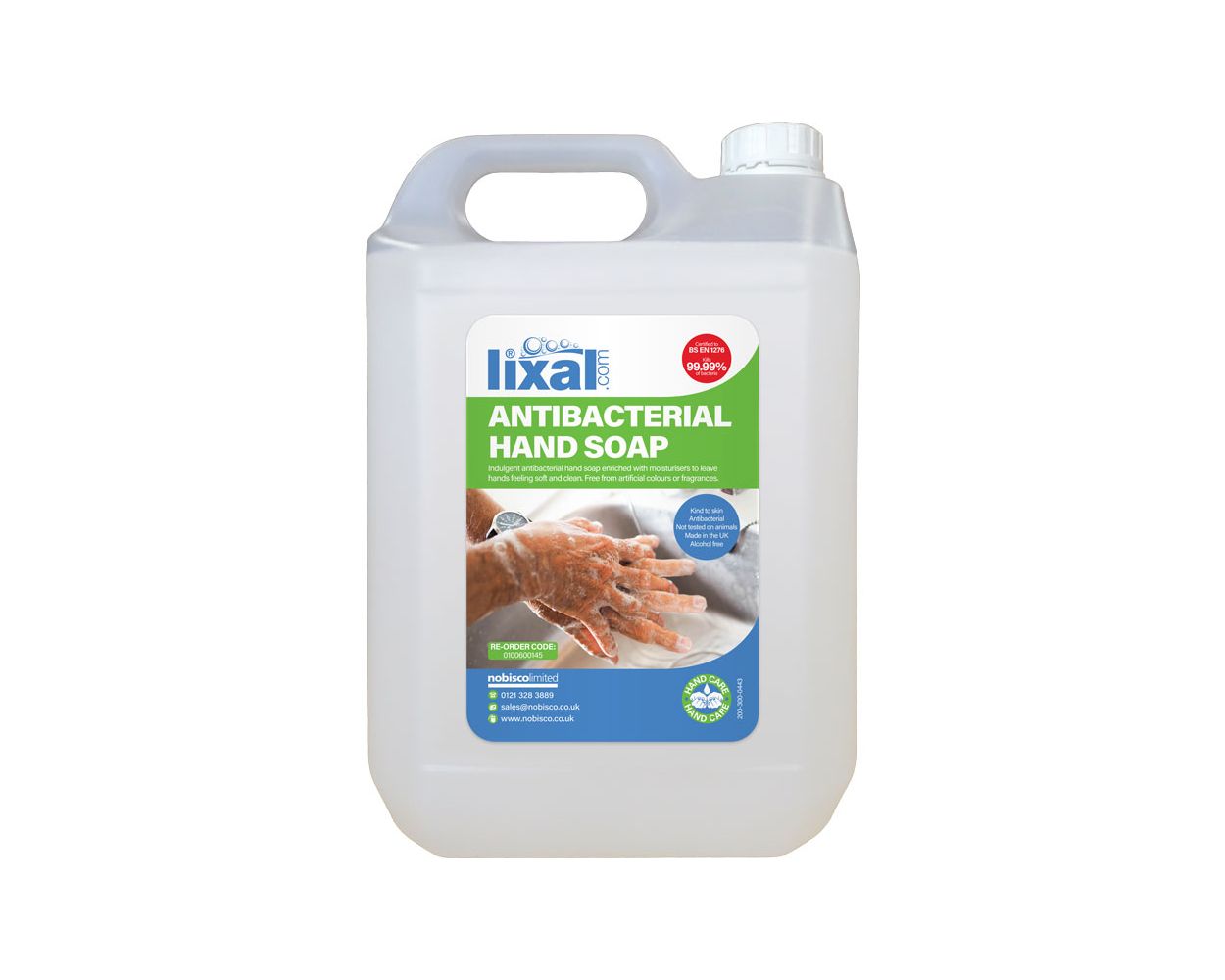 |
Lixal Anti Bactericidal Hand Soap 5L This antibacterial hand soap creates a bactericidal cleaning lather and is also free from solvents, harsh chemicals and perfumes, making it an ideal choice for all skin types. |
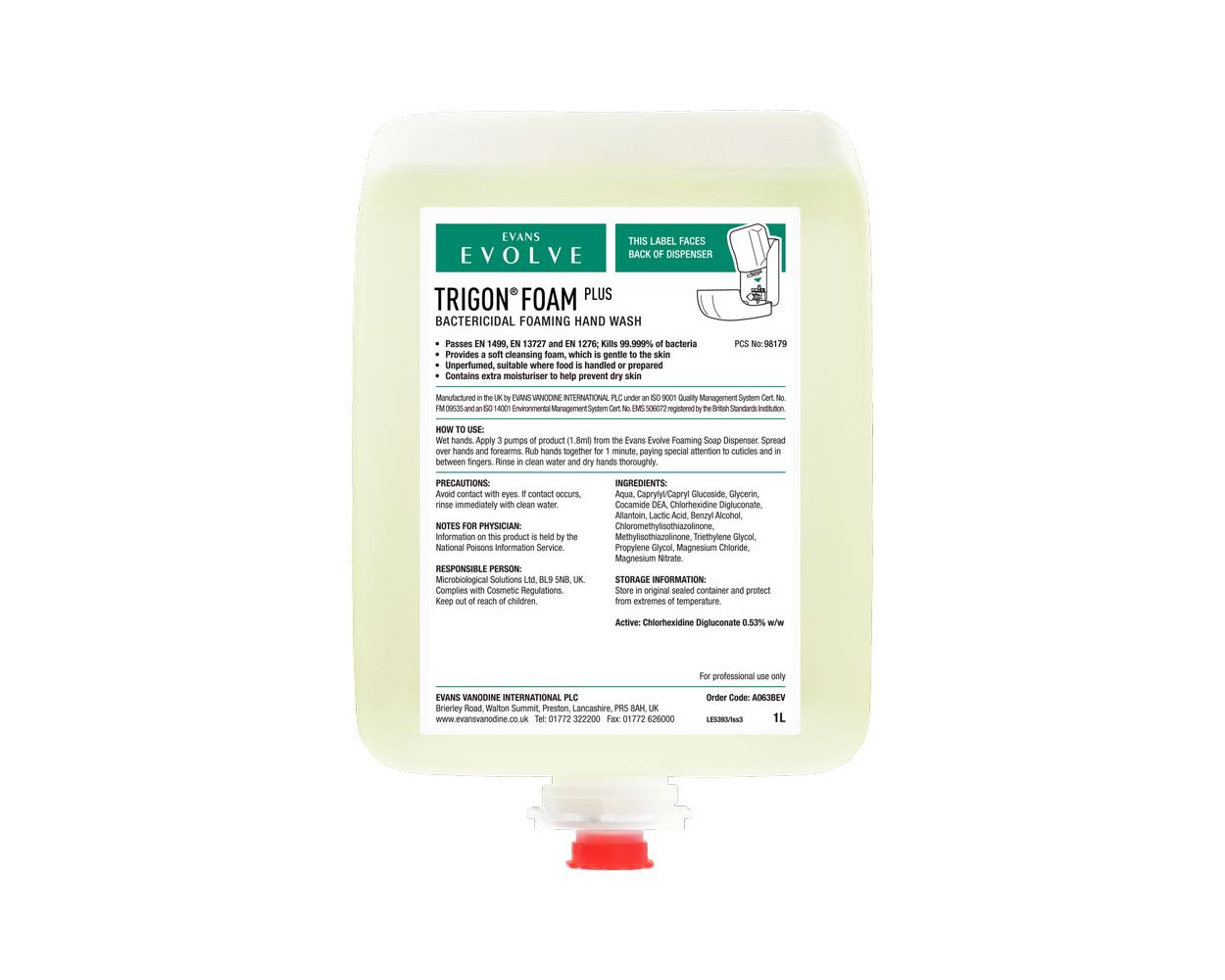 |
Evans Trigon Foam Plus Hand Soap 1L (Case/6) Our Evans Foaming hand wash is unperfumed and contains moisturising ingredients that are ideal for frequent hand washing in areas such as the kitchen. Available in a case of 6. |
Hand Sanitisers and Dispensers
Convenient for on-the-go cleanliness, hand sanitisers are a great alternative to soap and water and can be used anywhere in the workplace. Products we recommend include:
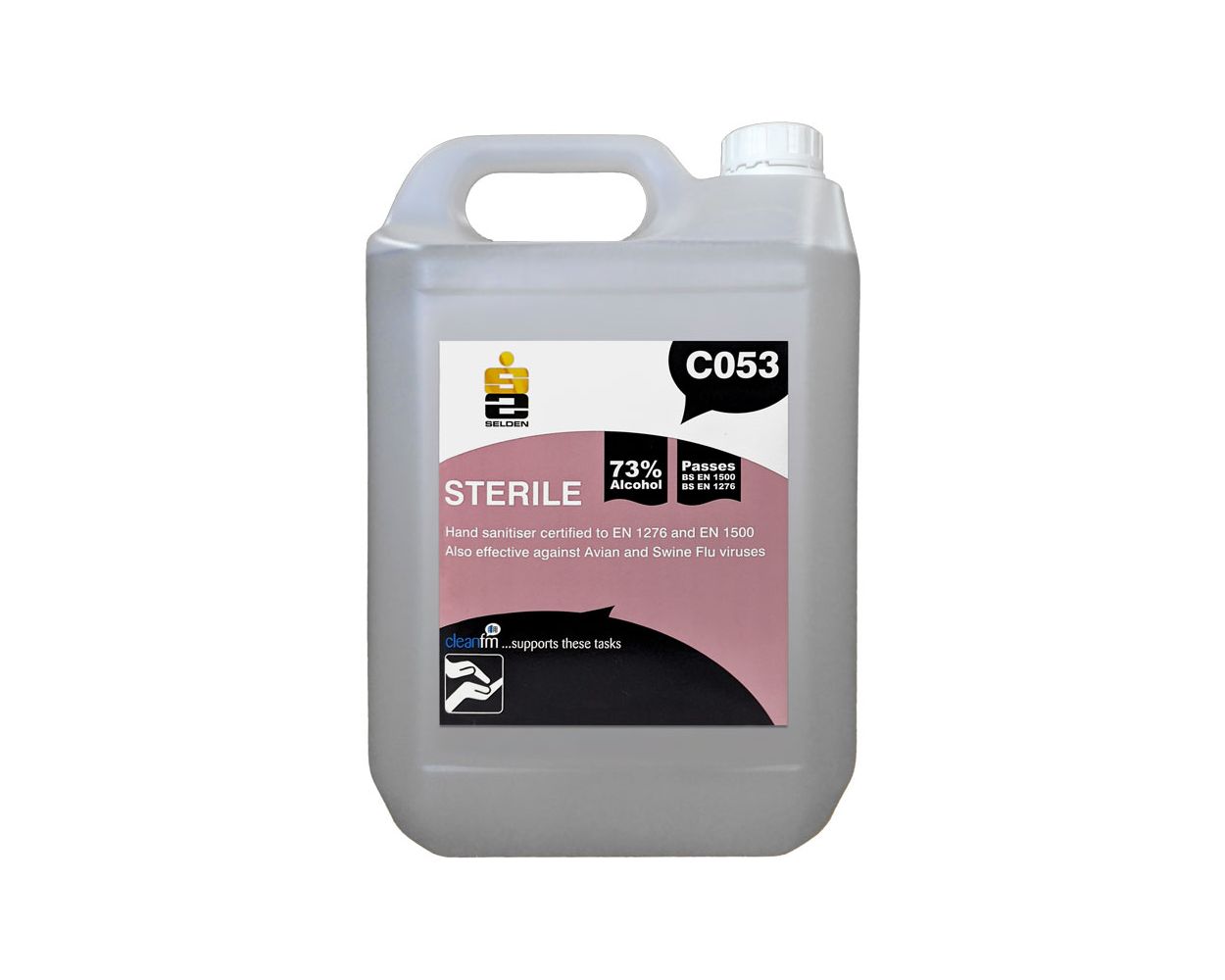 |
Selden Sterile Alcohol Hand Sanitiser 5L The Selden Sterile Hand Sanitiser contains a blend of grade alcohols and water and skin conditioning agents. The total alcohol content is around 65% to 70%. This product can be used to bulk-fill sanitiser dispensers or to refill pump bottles. |
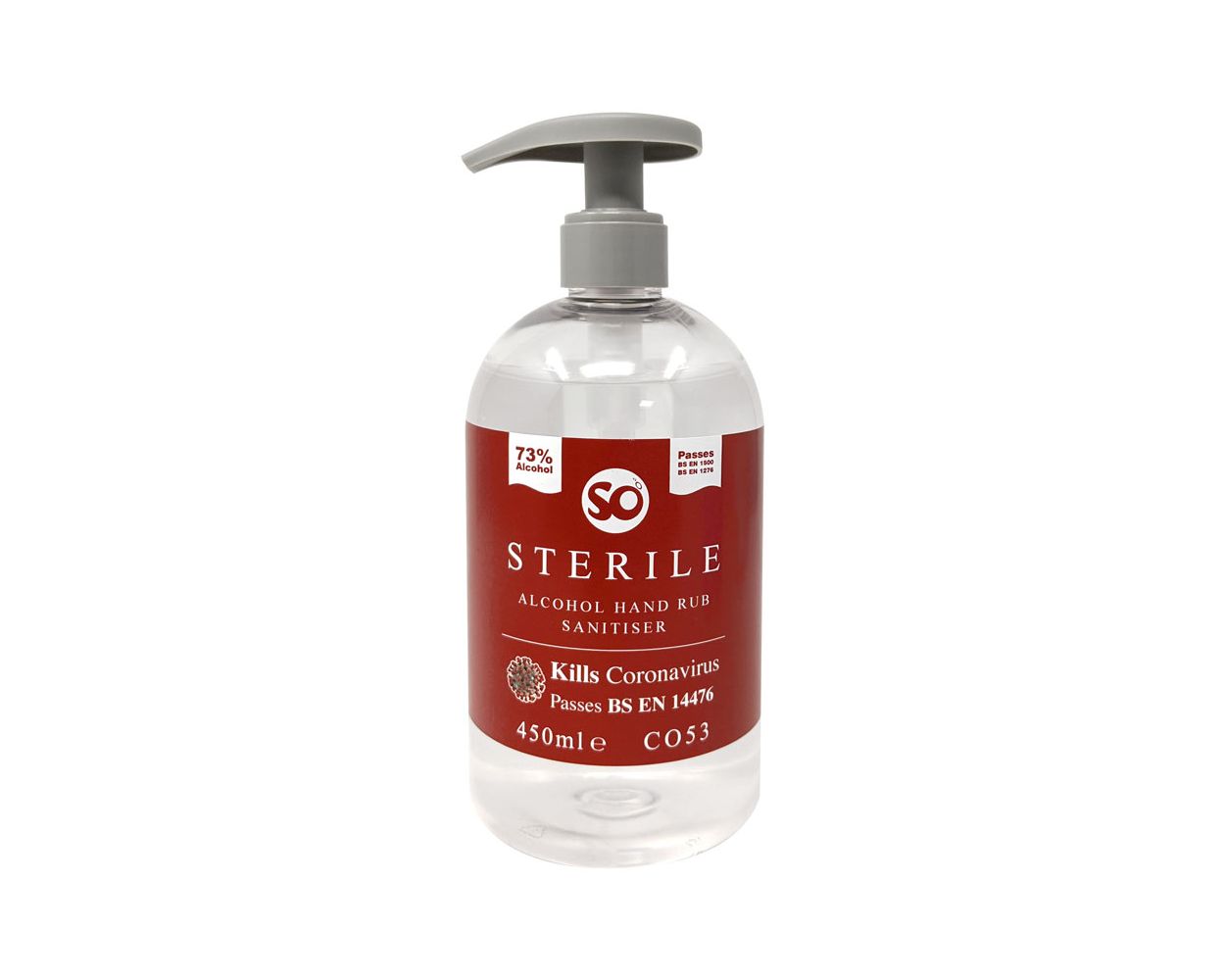 |
So Sterile 73% Alcohol Hand Sanitiser Pump Bottle 450ml (Case/6) This quick-acting and non-tainting alcohol hand rub is ideal for placing on workplace desks and in communal areas. It also contains skin conditioners to prevent dry skin and doesn't leave any sticky residue. |
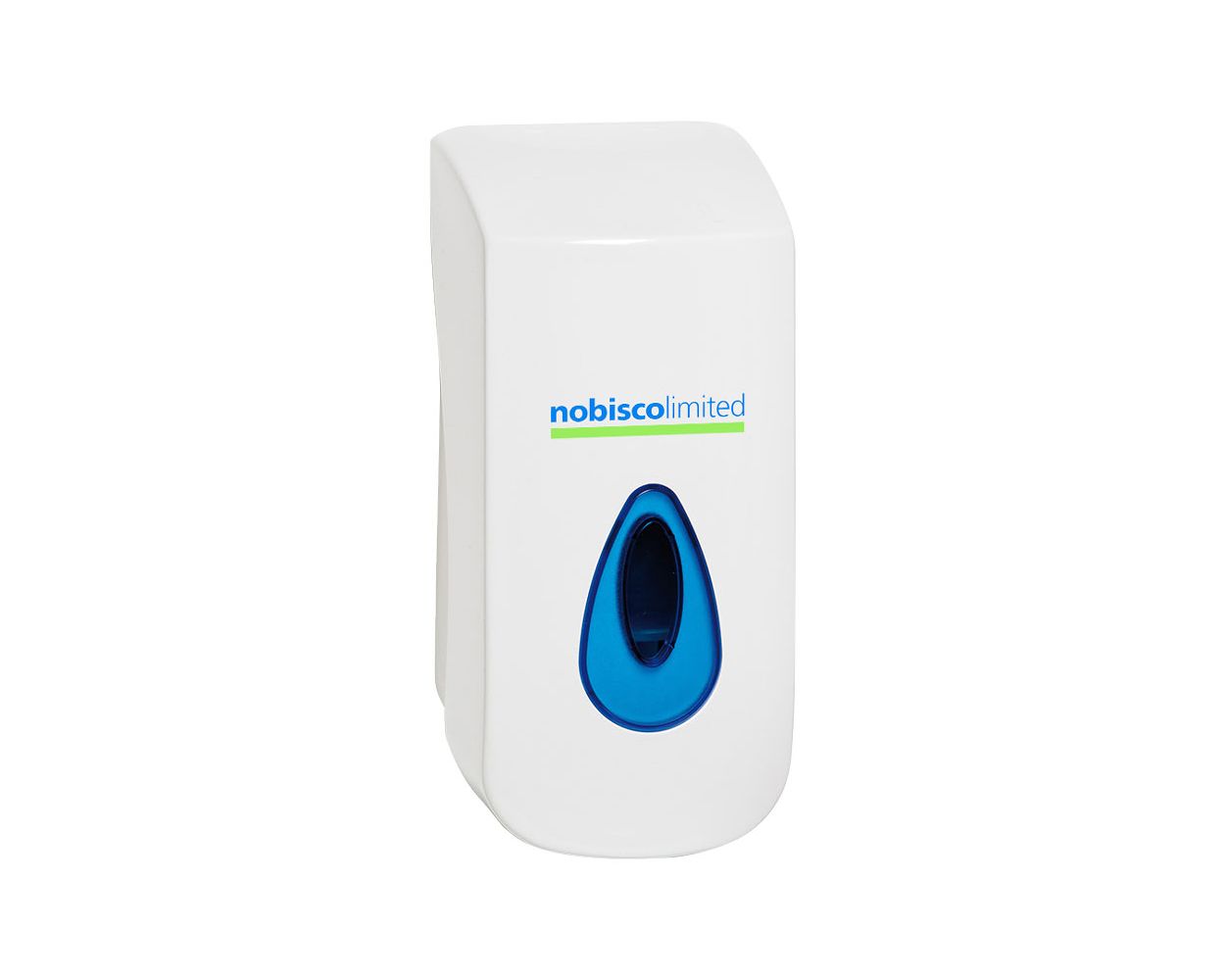 |
900ml Bulk Fill Soap Dispenser Our mounted soap dispensers can be used for both foam and liquid soaps and are an effective device to encourage hand hygiene in the workplace.
|
Disinfecting Hand Wipes
Hand wipes are an ideal solution against contamination as they don't require a lot of time for training to be used effectively. They are convenient and antibacterial, killing up to 99.9% of bacteria. Products we recommend include:
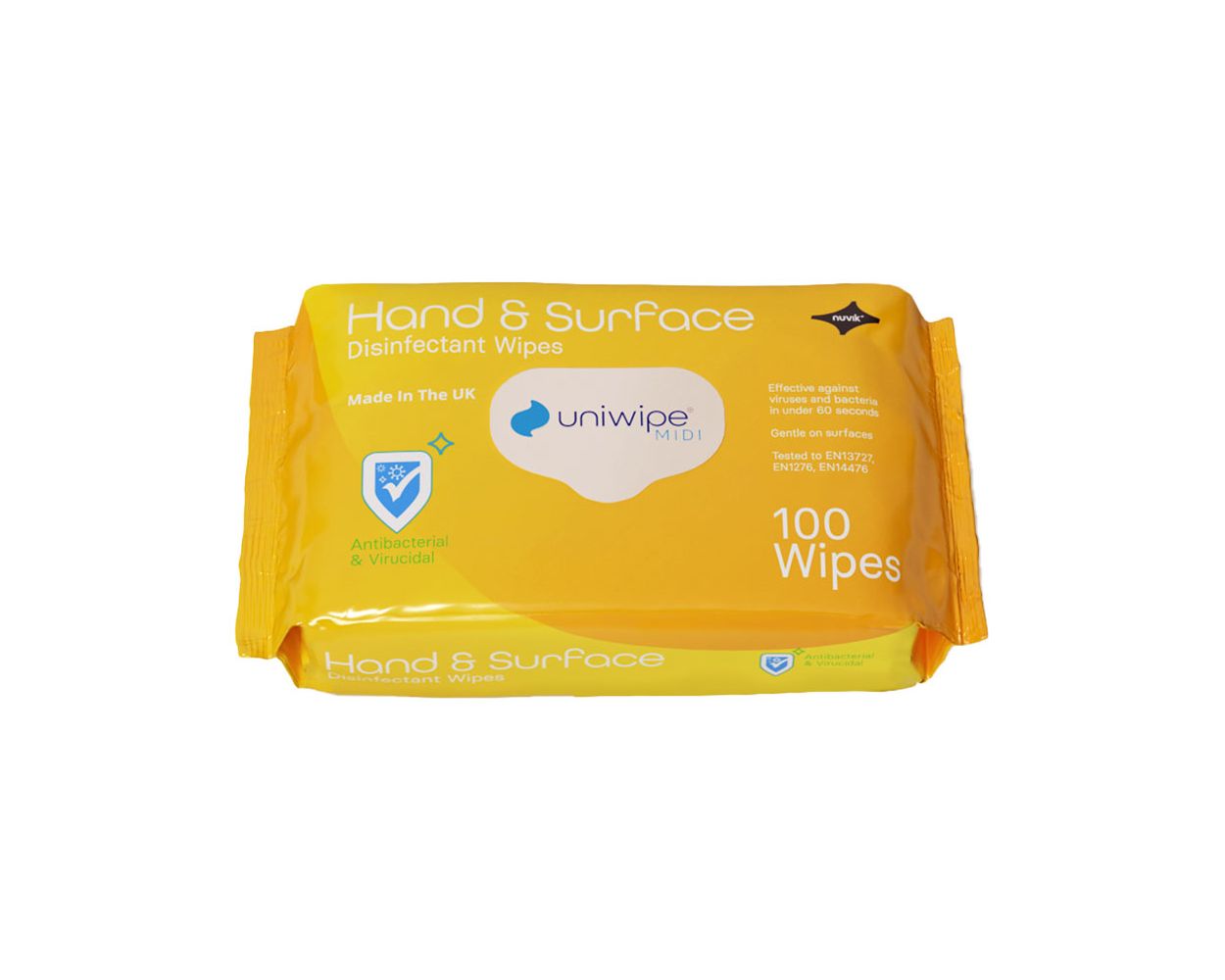 |
Uniwipe Hand & Surface Wipes (Pack/100) Our alcohol-free Uniwipe hand wipes are specially formulated for cleaning and disinfection, making them an ideal choice in workplaces and offices where hands need to be regularly cleaned. |
Hand Towels and Hand Towel Dispensers
 |
Katrin 2ply White Zig Zag Hand Towels (Case/4,000) These 2ply hand towels are presented one sheet at a time, increasing hand hygiene and reducing consumption. Suitable for low to medium-traffic areas. |
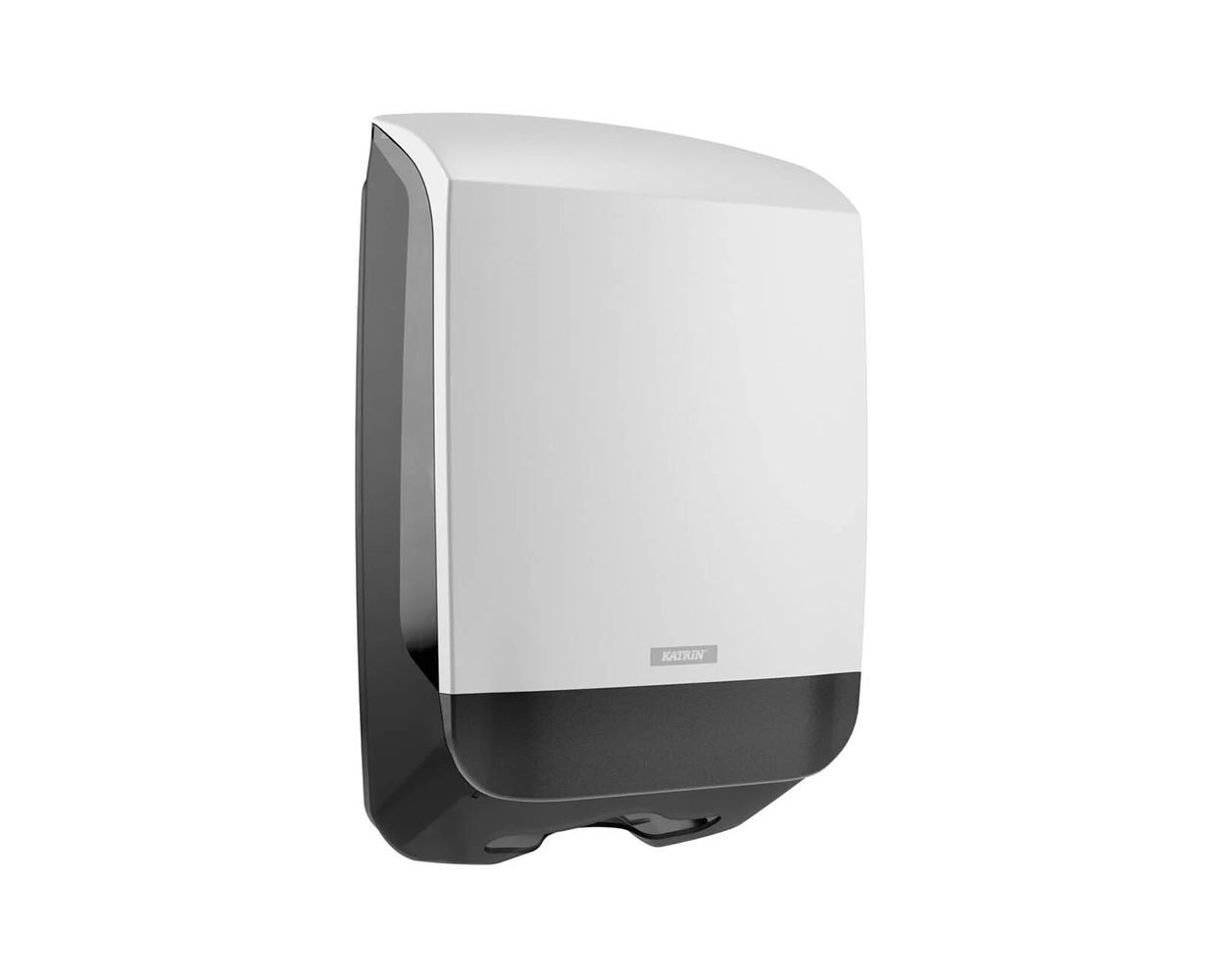 |
Katrin Hand Towel Dispenser White Our hand towel dispensers are ideal to place in the workplace bathroom, shared kitchens, and communal areas. |
Best practices for good hand hygiene in the workplace
Washing your hands is one of the easiest ways to protect yourself and the people around you from viruses and illnesses, but many of us may not be aware of how to wash our hands properly.
Use the right handwashing technique: Ensure staff are educated on the method of effective handwashing. Step-by-step instructions and a video can be found on the NHS hand washing guidance website which can be circulated around the workplace.
When to wash hands: Everyone should wash their hands after using the bathroom, before and after handling food in shared kitchen spaces, after blowing your nose, sneezing or coughing, after touching communal spaces and after using shared objects such as phones.
Monitor cleaning supply levels: Ensure staff always have access to hand sanitizers, hand soap, hand towels and wipes to be able to effectively keep their hands clean at all times. Facility managers should also be regularly checking soap dispenser levels and if there are sufficient paper towels and tissues available.
Creating a cleaner and healthier workplace
Good hand hygiene not only helps to reduce the spread of seasonal flu, colds and the outbreak of more serious illnesses like COVID-19, but it can also provide long-term benefits for workplace wellness. Whether it's bathrooms, break-out rooms or shared kitchens, a clean and sanitary workplace will encourage employees to use the work facilities with peace of mind. Providing staff with adequate hand cleaning products and regular reminders through internal newsletters and posters around the workplace can encourage good hand hygiene practices.







